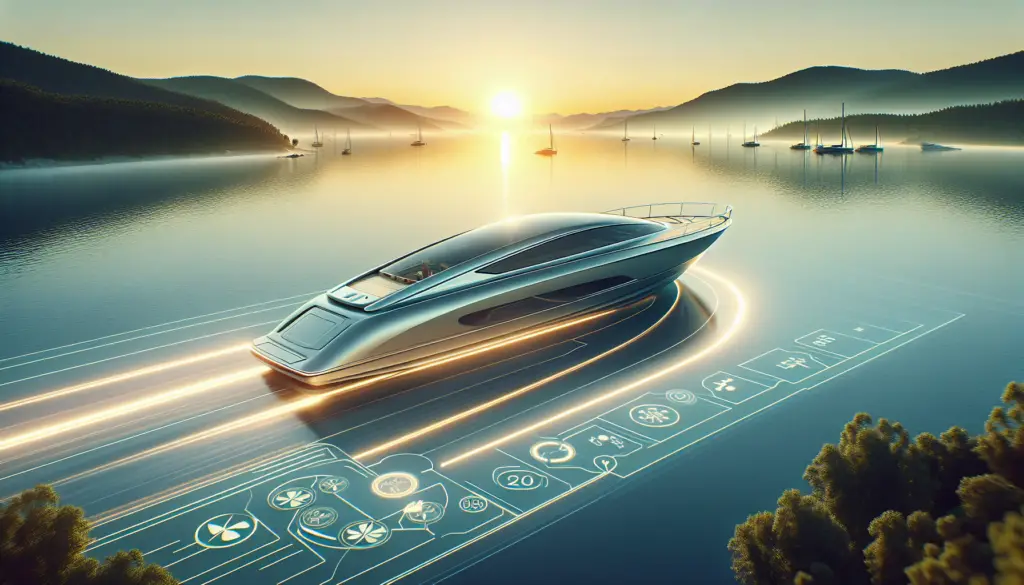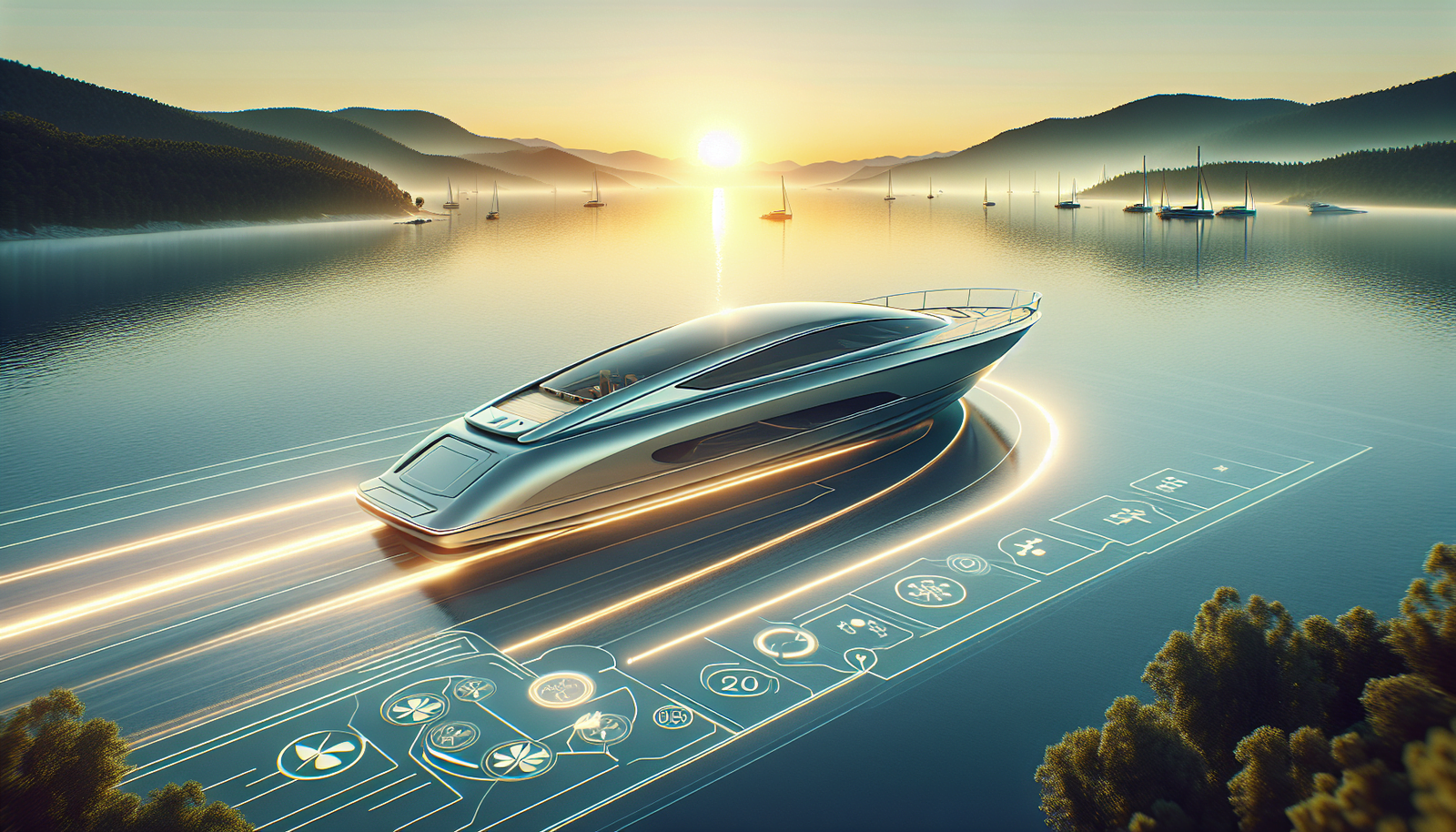So, you’re interested in eco-friendly boating, and you’re curious about electric boat engines. It turns out, these are substantially better for not only the environment but also your peace of mind and overall boating experience. This article is going to enlighten you about the multiple benefits of electric boat engines and how they contribute significantly to a greener, more sustainable way of boating. Rest assured, by the end of this read, you’ll be considering making the switch to electric propulsion systems for your next boating adventure.

Understanding Electric Boat Engines
Electric boat engines are innovative versions of traditional boat engines that are made for a more eco-friendly approach to boating. They diverge significantly from their gas and diesel-powered counterparts because they run on electricity. This particular quality offers a world of advantages, which we’ll explore in this article.
What is an Electric Boat Engine?
As the name suggests, an electric boat engine is powered by electricity instead of fossil fuels. It consists of an electric motor and a battery or a generator, which could be charged using renewable energy sources. This functional shift has led to its recent fame as a more environmentally friendly option in the boating industry.
Different Types of Electric Boat Engines
When it comes to electric boat engines, there are a variety of options to choose from based on your specific needs and preferences. There are trolling motors designed for smaller recreational boats, outboard engines for those with a medium-sized craft, and inboard engines if you own a larger boat. Each type comes with its own set of features, and selecting one would heavily depend on the kind of boating experience you’re aiming for.
How Do Electric Boat Engines Work?
Electric boat engines convert electrical energy into mechanical energy to drive the boat’s propeller. The power is generated from batteries, which can be charged either by plugging into a power source on the shore or harnessing solar or wind energy when at sea.
Environmental Advantages of Electric Boat Engines
What sets electric boat engines apart from traditional ones is their positive impact on the environment. Let’s elaborate on this facet a bit more:
Lower Emission of Harmful Gases
Unlike traditional engines that burn fossil fuels and emit carbon dioxide, electric motors don’t produce any exhaust gases. This means they contribute significantly less to air pollution.
Contribution to Reducing Carbon Footprint
Boats with electric engines leave a much smaller carbon footprint compared to those with fuel-powered engines. This is because the production of electricity, especially from renewable sources, has a lower overall emission of greenhouse gases such as carbon dioxide.
Reduced Water and Noise Pollution
Electric boat engines don’t release oil or other pollutants into bodies of water, reducing water pollution. Moreover, they operate quietly, which curtails noise pollution, making them ideal for use in noise-sensitive areas.
Efficiency and Performance of Electric Boat Engines
In comparison to conventional engines, the electric counterparts offer better efficiency and reliable performance.
Superior Engine Efficiency
Electric boat engines utilize energy more efficiently than traditional engines. They’re able to convert a higher percentage of the electrical energy from the power source into work, translating into greater overall efficiency and performance.
Less Noise and Vibration
As mentioned before, these engines produce less noise, which not only contributes to a less disturbed natural environment but also makes for a quieter boating experience. They also generate less vibration, ensuring a smoother ride.
Consistent Power Output
Electric boat engines can provide constant power output, enhancing the cruising speed and the overall performance of your boat.

Financial Benefits of Electric Boat Engines
Going electric does not only benefit the environment but your wallet too! Here’s how:
Lower Running Costs
Electric boats are generally more economical to operate because electricity is less expensive than fossil fuels. Not to mention, the engines are designed to be efficient which further reduces their running costs.
Reduced Maintenance Costs
These engines don’t require oil changes, fuel filters, or spark plugs, which essentially means less maintenance and therefore, reduced maintenance costs.
Government Incentives for Eco-friendly Boating
Many governments worldwide are offering tax breaks and incentives to individuals and companies who make the switch to electric, thereby promoting eco-friendly boating.
Durability and Reliability of Electric Boat Engines
Electric boat engines are not only environmentally friendly and cost-effective, but they are also durable and reliable.
Longer Lifespan
Because they contain fewer moving parts than traditional engines, electric boat engines have a longer lifespan. This eliminates the need for repeated replacement or repair, adding to its long-term cost-effectiveness.
Less Prone to Malfunctions
Fewer parts also mean the engine is less likely to break down, increasing reliability, and ensuring a hassle-free boating experience.
Suitability for Different Boat Types
Electric boat engines are versatile and suitable for various boat types, whether it’s a small canoe or a large yacht. Their adaptability makes them a great choice regardless of the type of watercraft you own.
Integration with Renewable Energy Sources
Electric boat engines can be seamlessly integrated with renewable energy sources, boosting their value proposition.
Overall Reduction in Energy Consumption
By harnessing renewable energy sources, you considerably cut down on your boat’s energy consumption. This is not only great for your wallet, but it also reduces the overall demand for electricity.
Potential for Integration with Solar Panels
Many electric boats now come with built-in solar panels, or one can fit them separately, which charge the boat’s batteries when sunlight is plentiful. This offers a clean and renewable source of energy, reducing reliance on shore charging.
The Possibility of Harnessing Wind Power
Wind energy can also be harnessed to generate electricity for your boat. By using a wind turbine, you can supplement your power supply, especially during longer voyages where there might not be an option to plug in and recharge.
Lifestyle and Health Benefits of Electric Boat Engines
There are several lifestyle and health benefits that come with the transition to electric boat engines:
Enhanced Boating Experience
The smooth, quiet operation and reduced vibration of electric boat engines enhances the overall boating experience, making your trips more enjoyable and relaxing.
Positively Affects Health due to Lower Noise and Emission Levels
A quieter boat engine means less noise-induced stress and reduced exposure to harmful fumes or gases for you and your passengers.
Increased Safety due to absence of flammable fuels
Since electric boat engines don’t use flammable fuels, they reduce the risk of fire, further improving safety onboard.
Impact on Local Economies
The growth of electric boating presents several opportunities for local economies:
Job Creation in Electric Boating Industry
The burgeoning demand for electric boats has led to the creation of new jobs in the manufacturing and servicing of these boats, contributing to local job markets.
Promotion of Eco-tourism
Due to their eco-friendly nature, electric boats can help promote eco-tourism, which could boost local tourism industries.
Support to Local Businesses with Eco-friendly Initiatives
The rise in demand for electric boats could also uplift businesses that offer related products and services, such as renewable energy solutions and green marinas.
Challenges and Solutions in the Adoption of Electric Boat Engines
While there are clear benefits in adopting electric boating, there are also some challenges and solutions to consider:
Addressing Range and Speed Limitations
Although improvements are being made, some electric boat engines may not match the speed and range of traditional engines. However, advancements in battery technology and alternative energy sources are poised to address these limitations soon.
Improvements in Battery Technology
Progress in battery technology is key to enhancing the performance of electric boats. Lithium-ion batteries, known for their long lifespan and high energy density, are becoming increasingly popular in this sector.
How Infrastructure Development Supports Electric Boating
The development of infrastructure, like electric charging stations in marinas, can support the growth of electric boating by making it easier and more convenient for boat owners to recharge.
Future of Boating Industry with Electric Engines
The future looks promising for the boating industry with the advent of electric engines:
Innovation and Technological Advancements
Technological advancements are expected to further improve the performance and reliability of electric boat engines. From more efficient motors to longer-lasting batteries, the possibilities for innovation are vast and exciting.
Expected Growth in the Market for Electric Boating
With increasing awareness of environmental issues and the tangible benefits of electric boats, the market for these vessels is expected to grow significantly in the future.
Adoption Trends Among Consumers and Businesses
More and more consumers and businesses are acknowledging the benefits of electric boats and adopting them, which is encouraging others to follow suit.
In conclusion, as we move towards a more sustainable future, the adoption of electric boat engines becomes a powerful way to reduce our carbon footprint, improve the boating experience, and at the same time, enjoy various economic benefits.

